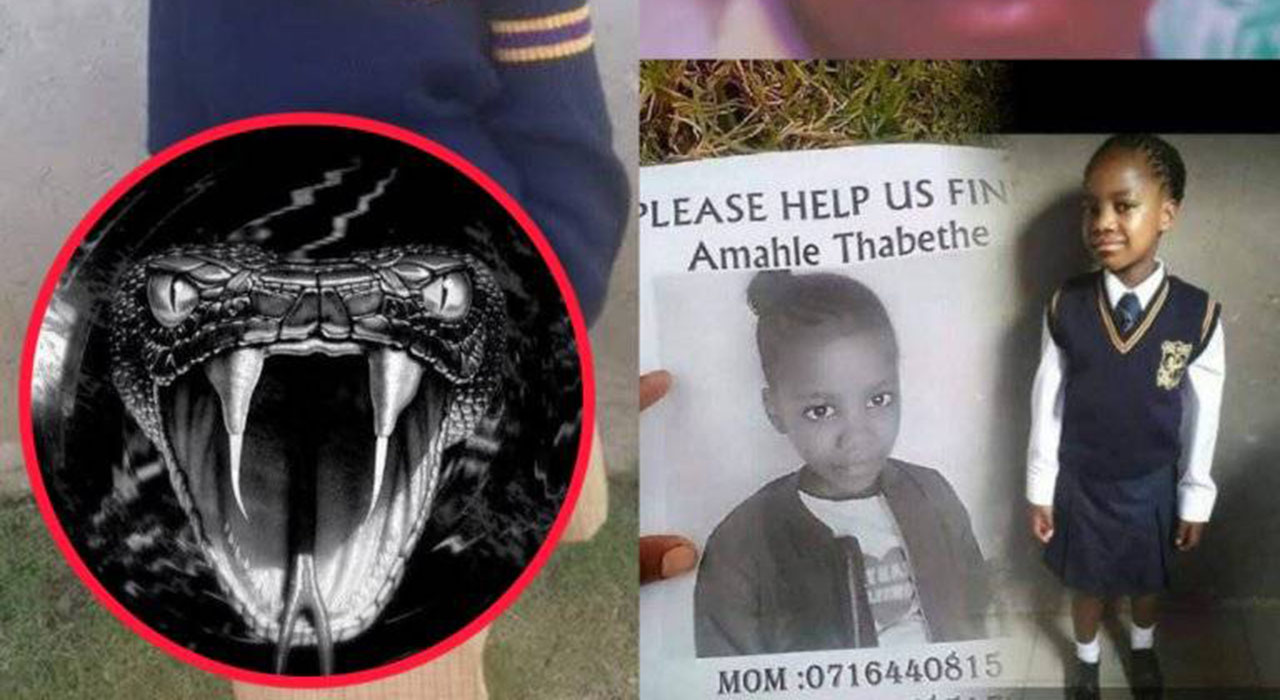The Impact of Unresolved Ancestral Debts: The Case of Amahle and His Father

In the heart of African culture, the concept of ancestral debts holds significant weight, as it is believed that unresolved spiritual obligations can affect multiple generations. The case of Amahle and his father has recently brought this ancient cultural belief to the forefront. According to traditional healer Gogo Maweni, the family’s struggles are deeply rooted in an unresolved *ingozi* (spiritual debt), a responsibility passed down through generations due to a historical transgression.

The Seven Cows Debt: A Cultural Obligation
The core of the family’s misfortune is tied to an outstanding debt of seven cows, owed to another family. In African traditional culture, such debts cannot be ignored, as they represent a form of compensation for wrongs committed in the past. These obligations must be settled to restore balance and harmony within the community and among future generations.
While this particular debt dates back to a past incident, its consequences are still being felt by Amahle and his father. In African tradition, the responsibility for settling these debts doesn’t end with the original wrongdoer. Rather, the burden falls on the descendants, who must ensure that these obligations are fulfilled to avoid a series of misfortunes.

### The Weight of Unsettled Spiritual Debts
When examining what happened to Amahle and his father, cultural experts highlight that failing to settle such debts can lead to numerous negative outcomes for the family. Some of these consequences include:
– Ongoing illness within the family
– Sudden or untimely deaths
– Financial hardships
– Spiritual disturbances
– General misfortune
These consequences are believed to be a result of the ancestral spirits’ dissatisfaction, which manifests in various forms of hardship.
### Steps Toward Resolution
Traditional healers like Gogo Maweni advise that in order to break the cycle of misfortune, the family must take immediate steps to address the spiritual debt. The following measures are recommended:
1. **Family Cleansing Rituals**: To remove the negative energy associated with the debt.
2. **Spiritual Protection Ceremonies**: To safeguard the family against further misfortunes.
3. **Settling the Seven Cows Debt**: To fulfill the cultural obligation and restore peace.
4. **Reconciliation with the Affected Family**: To heal old wounds and bring about mutual forgiveness.
These steps aim to resolve the generational debt and restore balance to the family’s spiritual and material wellbeing.

### Breaking the Cycle of Misfortune
Gogo Maweni’s revelations underline that the misfortunes faced by Amahle and his father are a direct result of their failure to settle the debt. While neither of them is deceased, the continuing hardship they experience is tied to this unresolved obligation. Traditional healers warn that if no action is taken, the negative effects could continue to ripple through the family, impacting future generations.
This situation serves as a stark reminder of the enduring importance of honoring ancestral duties in African culture. It emphasizes how unresolved debts can haunt families for generations, causing physical, emotional, and financial suffering until proper restitution is made.
### The Importance of Cultural Responsibility
The case of Amahle and his father is a poignant example of how cultural obligations are not just symbolic but have tangible consequences in the lives of individuals and families. It serves as a cautionary tale about the critical importance of resolving ancestral debts, maintaining harmony, and respecting spiritual traditions. Families facing similar issues are urged to consult with traditional authorities, document the origins of any outstanding debts, and take the necessary steps to fulfill their ancestral duties to avoid the repercussions of spiritual negligence.
As the family works toward resolving the issue, it will likely serve as a model for others in the community who are grappling with their own cultural obligations. Through these practices, the family can hopefully break free from the cycle of misfortune and restore peace within their household.

 Skeem Saam Thabiso Molokomme educational qualifications revealed
Skeem Saam Thabiso Molokomme educational qualifications revealed Shoki Mmola Reveals Her Abusive Marriage with Actor Sello Sebotsana
Shoki Mmola Reveals Her Abusive Marriage with Actor Sello Sebotsana Pearl Mbewe finds used condom in Maake kaNcube’s bedroom
Pearl Mbewe finds used condom in Maake kaNcube’s bedroom Get to know Nolitha fro The Black Door
Get to know Nolitha fro The Black Door House of Zwide: Nkosi Cheats on Shoki Again with Palesa
House of Zwide: Nkosi Cheats on Shoki Again with Palesa Mbali Mavimbela Exits Isiphetho: The Inside Scoop
Mbali Mavimbela Exits Isiphetho: The Inside Scoop